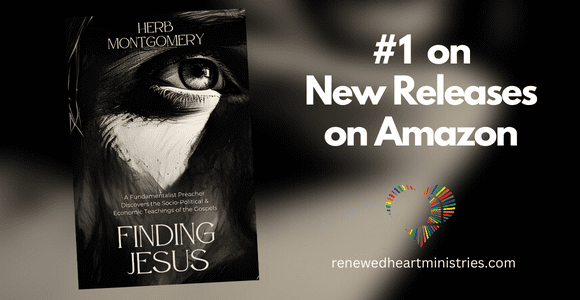
Let’s continue our consideration of shaping our world into a safe, compassionate, just home for everyone. After his baptism, Jesus immediately goes into the wilderness for forty days. Forty is a significant number in the Hebrew scriptures and other sacred Jewish literature.
One example is Moses’ forty days and nights of fasting as he received the Torah:
Welcome Readers! Please subscribe to Social Jesus Here.
(Read this series from its beginning here.)
“Moses was there with the LORD forty days and forty nights without eating bread or drinking water. And he wrote on the tablets the words of the covenant—the Ten Commandments.” (Exodus 34.28)
There are many more examples. Forty didn’t only refer to days and nights. The scriptures also named forty years, and measurements based on the number 40. The number 40 is used repeatedly in the Talmud and the history of the second Temple (see “The Number Forty”, The Jewish Encyclopedia)
But we shouldn’t gloss over Jesus’ time in the wilderness as narrative decoration. Jesus’ wilderness experience had special significance for his original Jewish followers. While in Mark, Jesus is tempted by the Satan (the Adversary), is among the wild animals, and is attended to by angels. Matthew and Luke later add that Jesus was fasting during this time, but Mark doesn’t elaborate on the temptations here. This version of the story doesn’t say there are three temptations. Nor does it detail them, as later version of the Jesus story do. What is also interesting is how Matthew and Luke overtly connect Jesus’ temptations with the language and liberation hopes of the apocalyptic book of Daniel chapter 7. Mark, the first gospel, begins this tradition much more subtly.
Ched Myers tells us that the book of Daniel was “a Jewish resistance tract written just before the Maccabean revolt during brutal persecutions under the Hellenistic ruler Antiochus Epiphanes IV . . . By Mark’s era it was well established as a discourse of political protest” (Binding the Strong Man, p. 101). He goes on to state the way apocalyptic literature was used in Mark’s culture was to “fire the socio-political imagination of the oppressed. First, in renewing old symbols and reappropriating Hebrew narratives of liberation, it functioned as a ‘remembering.’ Secondly, it promoted a ‘creative envisioning’ of a future in which God restored justice and full humanity to all.”
Horsley writes, “Emperors were not divine . . . The apocalyptic imagination thus had a strengthening effect on people’s ability to endure, and even a motivating effect toward resistance and revolt.” (Jesus and Spiral of Violence: Popular Jewish Resistance in Roman Palestine, p. 144)
Howard Kee, writing of the disproportionate interest by Mark’s gospel in the book of Daniel states,
“Daniel alone among all of the Old Testament books is quoted from every chapter; it is of the highest level of significance for the New Testament as a whole as a result of its overwhelming importance for Mark.” (Community of the New Age: Studies in Mark’s Gospel, p. 45)
We’ll consider how this might relate to our justice work today, next.
(Read Part 3)
Herb’s latest book, Finding Jesus: A Fundamentalist Preacher Discovers the Soci0-Political and Economic Teachings of the Gospels is #1 New Release available now on Amazon.














